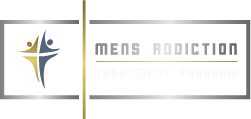Veterans can often require specialized care and support when seeking treatment for substance use. As a result, many rehab centers have created programs specifically tailored to meet the unique needs of veterans. These drug rehab centers for veterans offer a variety of options for those struggling with addiction. These types of centers aim to provide a supportive and understanding environment where veterans can receive the help they need.
One of the primary reasons why specialized drug rehab centers for veterans are so important is that many veterans struggle with substance use due to underlying issues related to their time in service. This may include conditions such as post-traumatic stress disorder (PTSD), traumatic brain injury (TBI), chronic pain, or other physical and mental health challenges. As a result, it’s crucial to seek help from a drug rehab for veterans that addresses these underlying issues to create long-lasting recovery.
What Is Inpatient Drug Rehab for Veterans?
Inpatient drug rehab for veterans is a specialized form of treatment where veterans live in a residential setting and receive comprehensive care around the clock. This model of care is particularly beneficial for veterans dealing with severe addiction or co-occurring mental health conditions. In inpatient drug rehab for veterans, the veteran is immersed in a recovery-focused environment where they have access to medical care, therapeutic activities, and peer support.
The program typically involves a combination of individual therapy, group counseling, family therapy, and medication-assisted treatment. It emphasizes not only overcoming addiction but also managing related issues like PTSD and chronic pain. The goal of these programs is to equip veterans with the skills and resources needed to maintain a substance-free life.
What Are the Drug Rehab Options for Veterans?
Veterans with addiction have several rehab options to turn to, each offering a different level of care and support tailored to the individual’s needs:
- Outpatient treatment – This is a flexible program that allows veterans to receive treatment while continuing with their daily routines. It includes regular counseling sessions, medication management, and access to support groups.
- Partial hospitalization program (PHP) – PHP is a step above outpatient treatment, offering a higher level of care and structure. Veterans in a PHP have access to medical and psychiatric care, individual and group therapy, and holistic treatments.
- Intensive outpatient program (IOP) – IOPs offer a more intensive form of care than standard outpatient treatment, with veterans attending therapy sessions for several hours a day, several days each week.
- Residential treatment – In this setting, veterans live at the treatment facility and receive around-the-clock care. These programs offer a structured environment, individual and group therapy, and medical care.
- Sober living homes – These are safe, substance-free living environments for veterans transitioning out of rehab. Residents often participate in support groups and other recovery activities while living in the home.
These varied options ensure that every veteran can find a veterans treatment program that fits their specific needs and circumstances.
Services and Therapies Often Offered at a Veteran Drug Rehab Center
Some services and therapies that you could expect at alcohol or drug rehab for veterans may include:
Individual Therapy
Individual therapy involves one-on-one sessions with a trained therapist to address personal challenges and develop coping strategies.
Group Therapy
Group therapy sessions conducted with other veterans, facilitating peer support and shared experiences.
Family Therapy
Family therapy involves family members in the recovery process to build a supportive home environment.
Cognitive-Behavioral Therapy (CBT)
This is a form of psychotherapy that helps veterans identify and change harmful thinking patterns that can lead to substance use.
Dialectical Behavior Therapy (DBT)
DBT teaches skills to manage stress, regulate emotions, and improve relationships, which can be particularly beneficial for those struggling with PTSD.
Eye Movement Desensitization and Reprocessing (EMDR)
EMDR is a psychotherapy treatment designed to alleviate distress associated with traumatic memories.
Medication-Assisted Treatment (MAT)
MAT uses medications with counseling and behavioral therapies to treat substance use disorders.
Physical Fitness and Recreation
Activities such as yoga, mindfulness, and outdoor recreational activities can promote overall wellness.
Vocational Training
These programs aim to help veterans develop job skills and reintegrate into the workforce post-recovery.
Holistic Therapies
Approaches such as meditation, acupuncture, and art therapy to heal the mind, body, and spirit.
Seek Help from a Veteran Drug and Alcohol Addiction Treatment Center
If you’re a veteran grappling with drug and alcohol addiction, don’t hesitate to reach out to a drug and alcohol addiction treatment center focused on supporting and helping veterans. These centers provide a haven of support and understanding, equipped to handle the unique challenges faced by veterans battling addiction.
With a wide range of therapies and services, from individual and group therapy to holistic approaches and fitness programs, these centers cater to the whole person, not just the addiction. Remember, seeking help is not a sign of weakness but a courageous step toward reclaiming control and forging a healthier, happier future.

